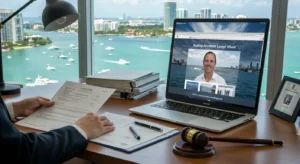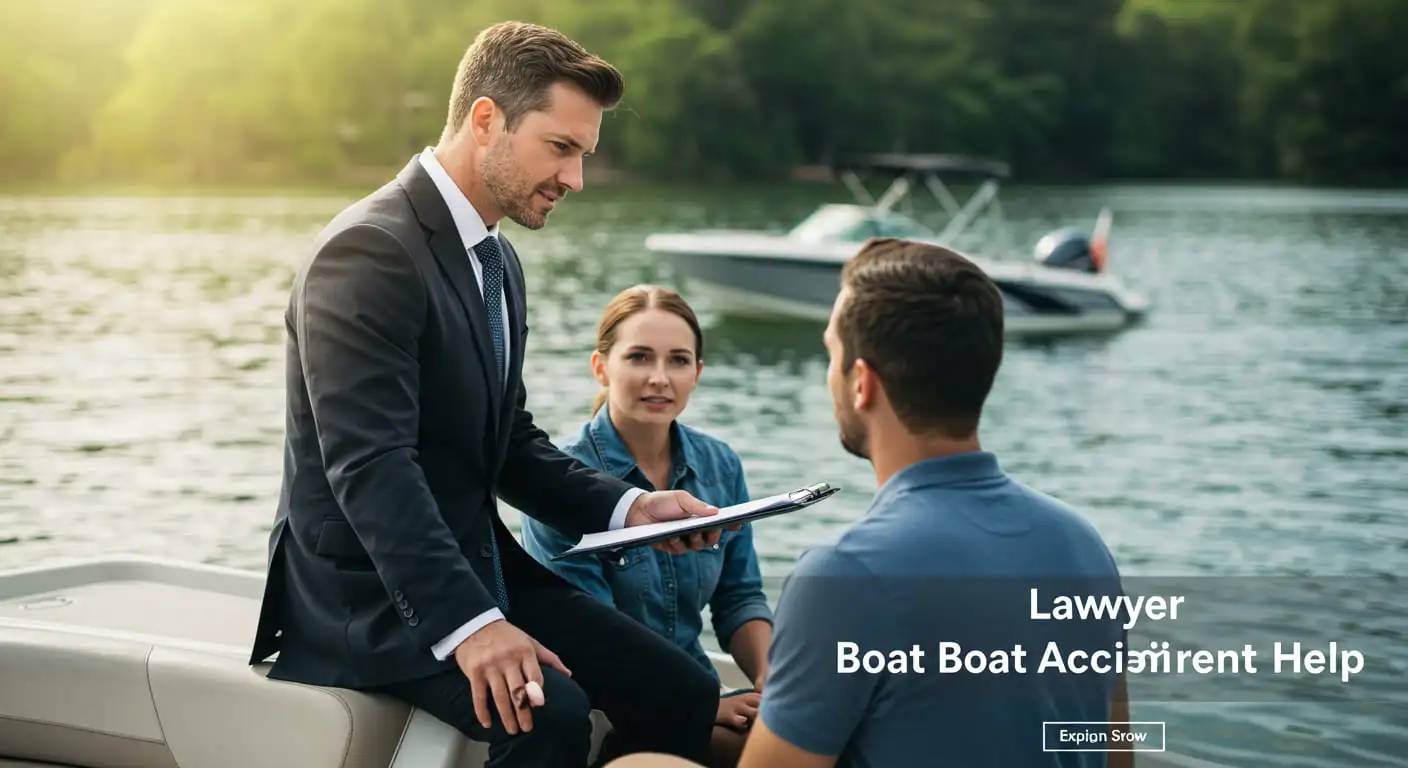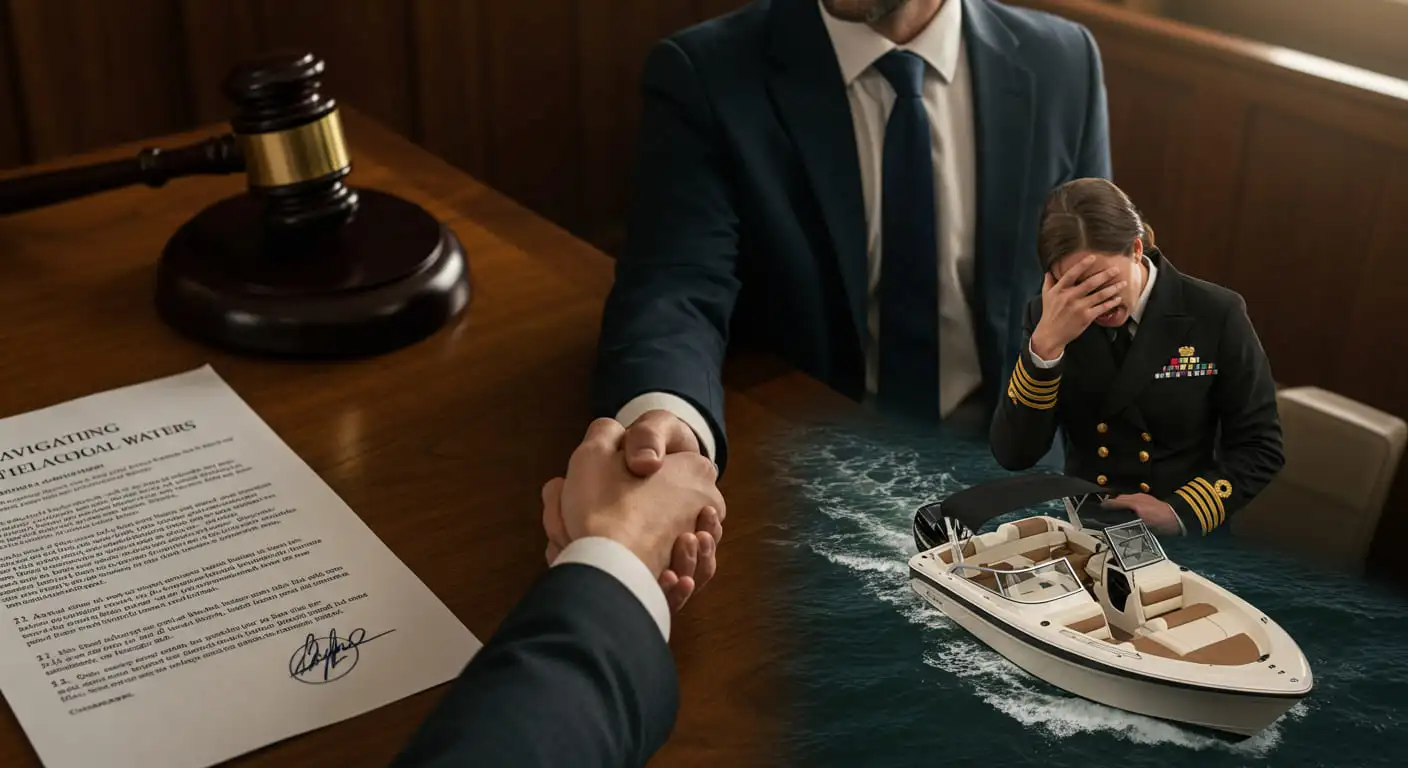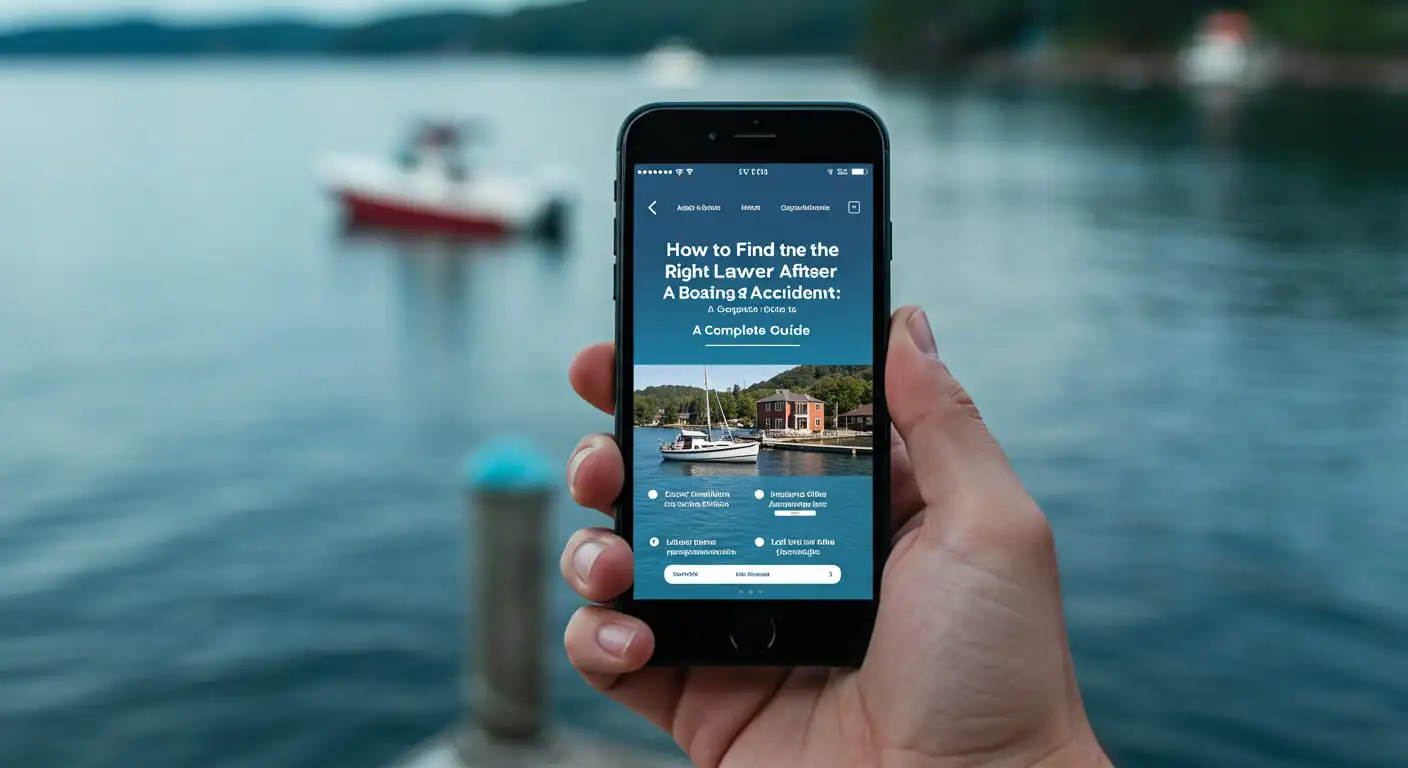Learn how to file a boating accident claim, gather vital evidence, and calculate long-term damages including lost wages, medical costs, and emotional suffering.
Step-by-Step: Filing a Boating Accident Claim with a Boat Accident Attorney
Initial Free Consultation—What to Expect
When you first reach out to a boat accident attorney, the initial consultation is your opportunity to understand whether your case has legal merit. This meeting is usually free of charge and focused entirely on reviewing the basic facts of your accident. The attorney will ask you questions about where and how the accident happened, whether anyone was injured, and if a police or Coast Guard report was filed.
Don’t worry about bringing everything on the first day, but having key information like medical records or accident photos can help. You’ll also have a chance to ask questions about the legal process, timelines, and what kinds of compensation may be available. It’s a two-way conversation: the attorney assesses your case, and you decide if they’re the right fit for you.
Gathering Evidence: Photos, Witness Statements, and Reports
One of the most important steps after any boating accident is collecting and preserving evidence. The quality and depth of evidence you provide can significantly influence the outcome of your claim.
Photos of the damaged boats, injuries, and the scene (including weather and water conditions) can paint a clearer picture of what occurred. Witnesses are also incredibly valuable. If others saw the accident, their statements can support your version of events and add credibility to your case.
Police or Coast Guard reports provide official documentation of the incident. These often include initial findings, citations, and other crucial observations that can strengthen your legal argument.
Accident Reconstruction Experts
In some complex cases—especially those involving high speeds, multiple vessels, or fatalities—your attorney may bring in an accident reconstruction expert. These professionals use physics, maritime laws, and data from the boats’ GPS systems to rebuild what happened before, during, and after the incident. Their expert testimony can be essential in proving fault or defending against claims of contributory negligence.
Medical Records and Future Care Plans
Medical documentation is a cornerstone of any injury claim. It not only verifies that injuries occurred but also outlines their severity, treatment path, and expected recovery timeline. Beyond immediate injuries, long-term care needs must also be considered. For example, someone with a spinal injury may require years of physical therapy or even lifelong support.
Attorneys often work with medical professionals to develop comprehensive care plans that reflect the true cost of recovery—physically, emotionally, and financially. This ensures your settlement or verdict accounts for all future needs.

Long-Term Consequences of Boating Injuries and How to Quantify Damages
Economic vs. Non-Economic Damages
When you’re injured in a boating accident, the harm you suffer often goes beyond what’s visible on a medical bill. The legal system recognizes this by allowing you to seek two main types of damages: economic and non-economic.
Economic damages are easier to measure. These include lost wages, medical bills, rehabilitation costs, and any future expenses tied to your injuries. These are the direct financial losses you can prove with receipts, invoices, or employment records.
Non-economic damages, on the other hand, are more subjective. They reflect the emotional and psychological toll of the accident—things like pain, anxiety, depression, loss of enjoyment of life, and trauma from the experience. Quantifying these requires a thoughtful approach, often involving expert input and an understanding of how your life has changed.
Calculating Lost Wages, Medical Costs, and Pain & Suffering
When estimating the full financial impact of an injury, attorneys consider both past and future losses. Missed workdays, reduced earning potential, and even the need to switch careers due to a disability all factor into lost wages. For medical expenses, it’s not just about what you’ve already spent—it’s also about anticipated surgeries, therapies, and medication.
Pain and suffering may not come with a receipt, but that doesn’t make them any less real. Lawyers often rely on testimonies, daily journals, and psychological evaluations to support these claims. Insurance companies may try to minimize these losses, which is why having strong evidence and expert validation is critical.
Life-Care Plans for Catastrophic Injuries
In cases involving serious or permanent injuries—such as brain trauma, paralysis, or amputations—creating a life-care plan is essential. These plans map out everything the injured person will need for the rest of their life, from home modifications and mobility aids to full-time caregivers.
Developing an accurate life-care plan typically involves collaboration between doctors, therapists, and financial experts. It becomes a key part of negotiations or courtroom presentations to ensure the victim receives the necessary resources to live with dignity and as much independence as possible.
Consulting Vocational Rehabilitation Experts
An often-overlooked consequence of boating injuries is the impact on one’s ability to work. If you can no longer perform your old job, or if your career prospects are limited due to physical or cognitive impairment, a vocational rehabilitation expert can help assess this.
These professionals evaluate your work history, skills, and physical limitations, then determine your realistic job opportunities moving forward. Their findings can be used to support claims for reduced earning capacity or job retraining costs, ensuring the final settlement fully reflects your altered career path.
Leave a reply










